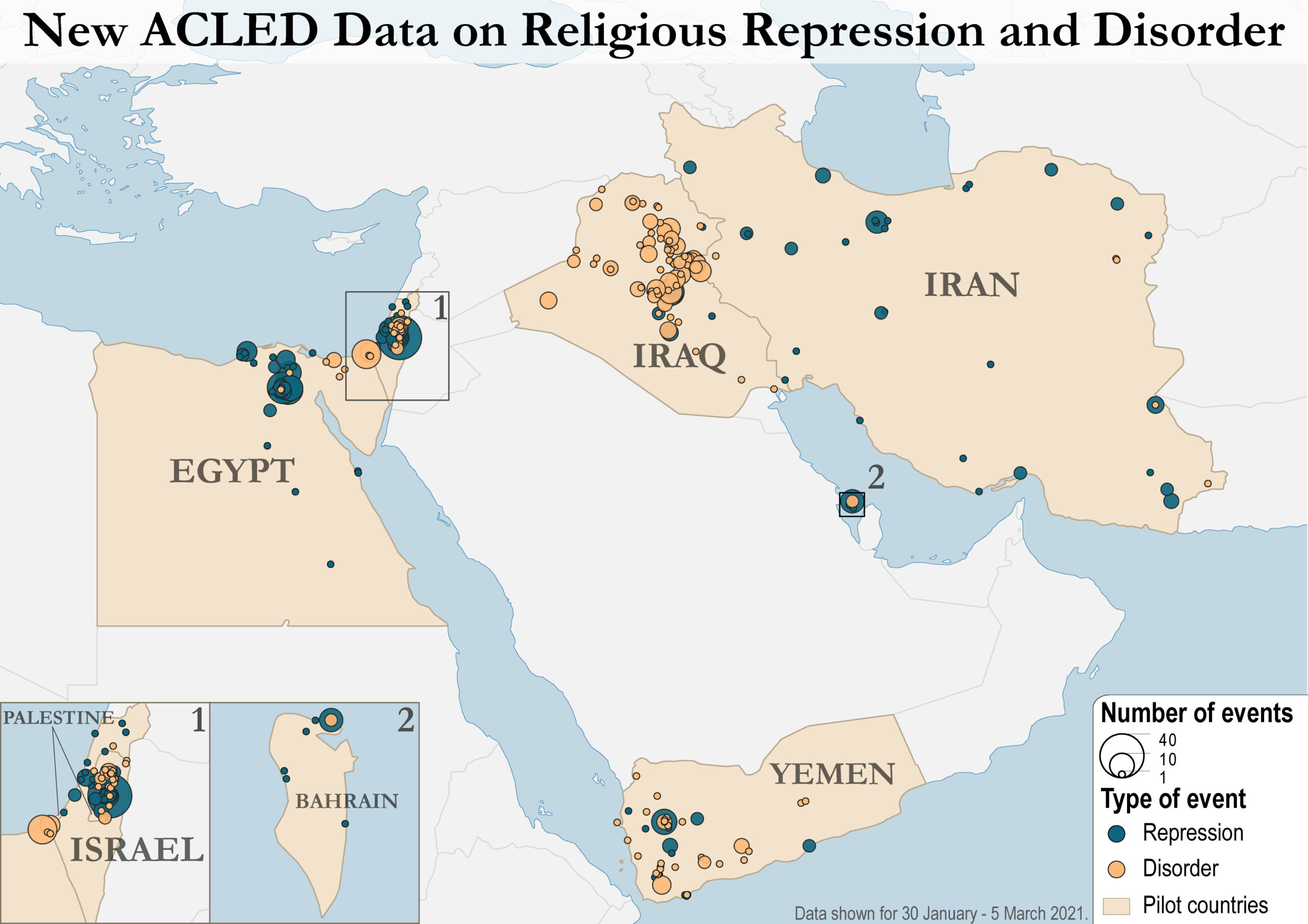We are pleased to announce the launch of ACLED-Religion, our new pilot project collecting real-time data on religious repression and disorder across seven countries in the Middle East and North Africa.
Religion can be used to legitimize political institutions, mobilize social movements, and drive support for armed conflicts. This is true across religions and political systems — from the Islamist political parties of the Middle East, to Christian militias in Africa, to Buddhist or Hindu nationalist groups in Asia. At the same time, religion and religious groups can also be the targets of political violence. Religious communities can be restricted in how they practice their religion, espouse their beliefs, or in the rights they are afforded. Research indicates that religion-based violence has increased in recent years,1 Monica Duffy Toft, “Getting Religion? The Puzzling Case of Islam and Civil War,” International Security, (2007), 31:4, 97-131. and some evidence suggests that religious conflicts may be even more violent than other types of conflicts.2 Susanna Pearce “Religious Rage: A Quantitative Analysis of the Intensity of Religious Conflicts,” Terrorism and Political Violence, (2005), 17:3, 333-352; Monica Duffy Toft, “Religion, Civil War, and International Order,” BCSIA Discussion Paper, Kennedy School of Government, Harvard University, (2006).
Despite these trends, there has been an absence of real-time, event-based data to track and measure religious violence across multiple countries and contexts.
ACLED-Religion aims to fill this gap. Building off ACLED’s core methodology for monitoring global political violence and demonstration activity, ACLED-Religion introduces new event types to capture religion-related violence and harassment while adding further information about religious dynamics and actors to existing ACLED data. All event types in the ACLED dataset exist in the ACLED-Religion dataset — coded using the same methodology — making it possible to compare events across both datasets.
With coverage beginning in January 2021, the pilot project currently collects real-time data on seven countries in the Middle East and North Africa: Bahrain, Egypt, Iran, Iraq, Israel, Palestine, and Yemen. These countries represent a diverse set of religious landscapes in the region, including an active conflict involving religion-based actors, an established theocracy, and the region’s only non-Islamic majority country. Data are derived from a wide range of local, subnational, national, regional, and international sources, and the information is collected by trained researchers worldwide.
ACLED-Religion data are updated weekly every Wednesday and made publicly available through the ACLED-Religion export tool and the ACLED-Religion API. Weekly overviews will track key developments across all seven pilot countries, while the interactive ACLED-Religion dashboard maps the latest data and allows users to explore additional trends. Check the ACLED-Religion homepage for new methodology resources, special reports, and more.

A US-based 501(c)(3) non-profit organization established in 2014, ACLED is the highest quality and most widely used real-time data and analysis source on political violence and demonstrations around the world.
If you would like to use ACLED data and analysis, please review ACLED’s Terms of Use & Attribution Policy. For more information about ACLED methodology, please check the ACLED Resource Library.
For interview requests and press inquiries, please contact Sam Jones, Senior Communications Manager.





